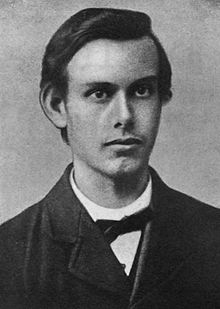Would you hear of an old-time
sea-fight?
Would you learn who won by the
light of the moon and stars?
List to the yarn, as my
grandmother’s father the sailor told it to me.
Our foe was no skulk in his
ship I tell you, (said he,)
His was the surly English
pluck, and there is no tougher or truer, and never was, and never will be;
Along the lower’d eve he came
horribly raking us.
We closed with him, the yards
entangled, the cannon touch’d,
My captain lash’d fast with
his own hands.
We had receiv’d some eighteen
pound shots under the water,
On our lower-gun-deck two
large pieces had burst at the first fire, killing all around and blowing up
overhead.
Fighting at sun-down, fighting
at dark,
Ten o’clock at night, the full
moon well up, our leaks on the gain, and five feet of water reported,
The master-at-arms loosing the
prisoners confined in the after-hold to give them a chance for themselves.
The transit to and from the
magazine is now stopt by the sentinels,
They see so many strange faces
they do not know whom to trust.
Our frigate takes fire,
The other asks if we demand
quarter?
If our colors are struck and
the fighting done?
Now I laugh content, for I
hear the voice of my little captain,
We have not struck,
he composedly cries, we have just begun our part of the fighting.
Only three guns are in use,
One is directed by the captain
himself against the enemy’s mainmast,
Two well serv’d with grape and
canister silence his musketry and clear his decks.
The tops alone second the fire
of this little battery, especially the main-top,
They hold out bravely during
the whole of the action.
Not a moment’s cease,
The leaks gain fast on the
pumps, the fire eats toward the powder-magazine.
One of the pumps has been shot
away, it is generally thought we are sinking.
Serene stands the little
captain,
He is not hurried, his voice
is neither high nor low,
His eyes give more light to us
than our battle-lanterns.
Toward twelve there in the
beams of the moon they surrender to us.















































